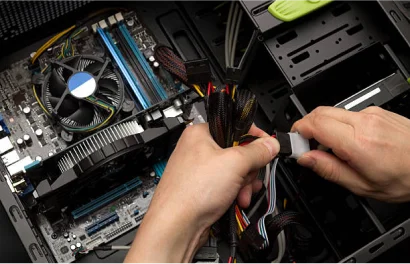In a world dominated by technological advancements, the disposal of electronic waste (e-waste) has become a pressing global concern. This blog delves into the transformative journey of e-waste, shedding light on the processes that unlock value and the pivotal role played by e-waste management companies.
The Journey of E-Waste:
E-waste encompasses discarded electronic devices, posing environmental challenges if not managed responsibly. The journey begins with the disposal of old computers, smartphones, and other electronic gadgets. Instead of viewing these items as mere waste, innovative solutions are reshaping the narrative, recognizing them as potential sources of valuable materials.
Value Extraction Techniques:
Unlocking value from e-waste involves sophisticated processes aimed at recovering valuable materials. E-waste contains precious metals like gold, silver, and copper, along with reusable components such as semiconductors and plastics. Through advanced techniques like hydrometallurgical and pyrometallurgical processes, these materials can be extracted and repurposed, turning what was once considered waste into valuable resources.
Innovative E-Waste Recycling Solutions:
As technology evolves, so do the methods for recycling e-waste. Innovations in e-waste recycling include automated sorting systems, efficient dismantling processes, and advanced recovery techniques. These solutions not only enhance the recovery of valuable materials but also contribute to reducing the environmental impact of improper e-waste disposal.
The Role of E-Waste Management Companies:
E-waste management companies play a crucial role in the responsible recycling of electronic waste. These companies leverage their expertise to ensure the proper collection, transportation, and processing of e-waste. Compliance with environmental standards and certifications, such as R2v3, signifies a commitment to sustainable practices, assuring businesses and consumers that their e-waste is managed responsibly.
Environmental Responsibility and Circular Economy:
Responsible e-waste recycling aligns with environmental responsibility and the principles of a circular economy. By extracting value from e-waste and reintroducing recovered materials into the production cycle, the environmental impact of raw material extraction is reduced. This approach not only conserves resources but also mitigates the environmental harm caused by improper e-waste disposal.
In conclusion, e-waste, when managed responsibly, transforms from a potential environmental hazard into a source of wealth. The collaboration between consumers, businesses, and e-waste management companies is essential to fostering a sustainable approach to e-waste recycling. By unlocking the value in e-waste, we contribute to both resource conservation and the creation of a more sustainable, circular economy.

